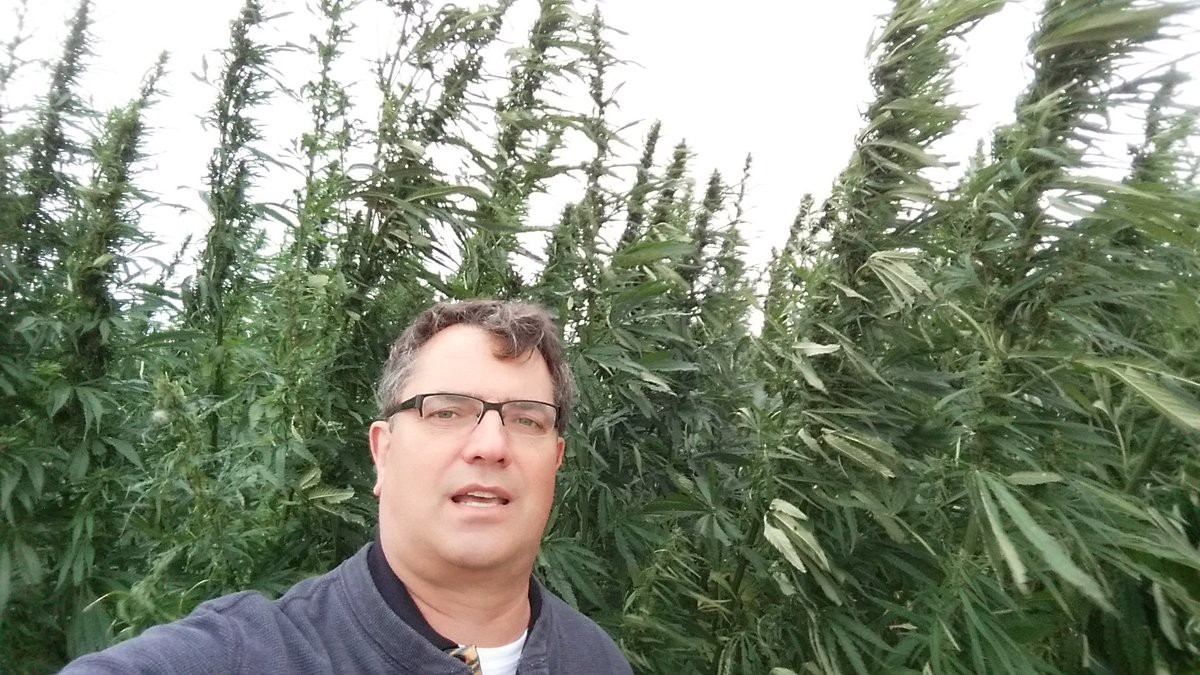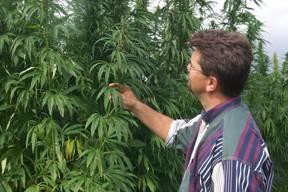
I have a confession: I have grown several tonnes of cannabis in various locations in Alberta over the years.
It is probably important to clarify that this was low-THC hemp, which was grown under one of the first special cannabis research permits issued by Health Canada in the mid-1990s. The large field plots that our research team grew met the Government of Canada’s criterion of having a maximum content of 0.3 per cent THC, which is the psychoactive chemical found in much higher quantities in marijuana.
Canadian farmers are always looking for new opportunities to grow new crops that will increase their family farm income and ensure the economic and environmental sustainability of their operations. My own research interests have been focused on the identification of new species that could diversify crops here in Canada and across the globe. Canada has had tremendous success with canola, pulse crops (field pea, lentil, chickpea and beans) and more specialized industries like spices and essential oils. In the 1990s there was a great deal of interest in changing the absolute prohibition on growing cannabis to allow Canadian farmers to produce low-THC hemp, which would be used to for products that could be made from the fibre and seed of the crop.
New economic opportunities generate a great deal of excitement. Our research was used to inform both government policy makers and farmers about the economic opportunities of low-THC hemp. Sharing our results provided a neutral source of information so that producers, processors and everyone else who wanted to become part of the value chain would see both the positive and negative elements of the new industry.
Cannabis is in the news again. With the Government of Canada’s introduction of legislation to legalize cannabis in 2018 there are many of the same issues coming forward. New companies are sure that they will become cannabis multinationals with multi-billion dollar profits. Investors expect their stock portfolios to sky rocket. Communities and regions see new opportunities for economic growth and renewal. Jurisdictions are concerned about additional costs with respect to enforcement of the new legislation.

To help share information on these important opportunities, the Faculty of Agricultural, Life and Environmental Sciences (ALES) will be hosting a cannabis symposium on March 22 at Lister Centre. The Honourable Anne McLellan will discuss her role as chair of the Federal Task Force on Cannabis Legalization and Regulation and provide an analysis of the current status of the federal legislation. Allan Cleiren, Chief Operating Officer of Aurora Cannabis — owners of the 800,000 ft2 production greenhouse located near the Edmonton International Airport — will describe the remarkable expansion of that company in developing a global footprint for their business. Plant scientists will explain the newest findings on the science of plant production, presenting their research in low and high THC cannabis. The Government of Alberta Cannabis Secretariat will update the audience on the most current issues facing the province (which has responsibility for how cannabis will be sold in Alberta along with all issues linked to law enforcement). Other speakers will highlight their insights on the economic, social and policy issues that the change in legislation will introduce into Alberta and Canada.
We are inviting a wide audience of students, staff and faculty along with the larger community of business people, non-governmental organizations, all levels of government and interested citizens to attend our free event. Join us — it’ll be an afternoon you won’t soon forget. More information can be found on our Eventbrite page.

Stan Blade — Dean, Faculty of Agricultural, Life and Environmental Sciences (ALES)
Stan Blade is the dean of the Faculty of Agricultural, Life and Environmental Sciences; he is the former CEO of Alberta Innovates Bio-Solutions and served as director of Alberta’s Crop Diversification Division. He is a veteran of Albertan agricultural research and has international experience that spans research and applied science across the globe